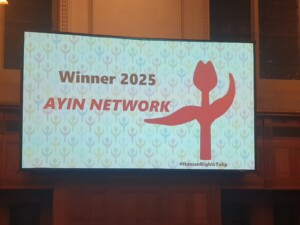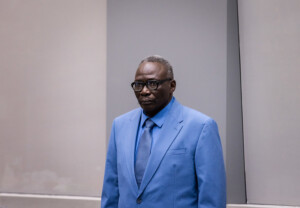Grand Ethiopian Renaissance Dam: Sudan ‘deeply concerned’
Sudan’s Minister of Irrigation and Water Resources, Yasir Abbas, has expressed “deep concern” over the Ethiopia’s intention to proceed with the filling of the Grand Ethiopian Renaissance Dam (GERD) and the absence of bilateral talks this week before tomorrow’s tripartite meeting.
 Global view of the Nile Basin in January (NASA)
Global view of the Nile Basin in January (NASA)
Sudan’s Minister of Irrigation and Water Resources, Yasir Abbas, has expressed “deep concern” over the Ethiopia's intention to proceed with the filling of the Grand Ethiopian Renaissance Dam (GERD) and the absence of bilateral talks this week before tomorrow’s tripartite meeting.
Abbas’ Ethiopian counterpart recently announced the country’s plans to continue filling the dam’s reservoir for the second year, with 13.5 billion cubic metres of water starting in July, after the rainy season begins.
In a press statement on Friday, Abbas criticised Ethiopia’s plans to continue filling the dam without prior notification and agreements. He warned of the consequences to the nearby Roseires dam, just across the border in Sudan’s northern Blue Nile state.
“The decision could be considered a direct threat to the Roseires Dam and to the lives of the people living near the banks of the Blue Nile,” he said, adding that the first filling of about 5 billion cubic metres of water in July 2020 caused significant problems for drinking water stations in Khartoum.
Bilateral talks abandoned
In a letter sent to the Minister of Cooperation of South Africa, that currently chairs the African Union Commission, Abbas affirmed Sudan's commitment to continue negotiations on the Grand Ethiopian Renaissance Dam under the auspices of the African Union “at any time, if the negotiation methodology has been modified to give a greater role to experts”.
Tripartite talks between the three countries are due to restart tomorrow. The three countries also adopted Sudan’s proposal to hold bilateral meetings this week, not only between the three countries, but also with a group of experts from the African Union and international observers.
The bilateral talks are supposed to “identify points of agreement and disagreement between the three countries,” said the Minister.
On January 3, Sudan filed a request to arrange a bilateral meeting with the African Union experts before the tripartite ministerial meeting tomorrow, January 10.
However, Abbas said he was surprised instead by an invitation to resume the tripartite meeting, which he considered a retreat from what was agreed upon. The Minister said “this is a step considered not only a waste of time, but one of the reasons for the expansion of the dispute between the parties.”
The letter concluded with the Minister’s remark that they are awaiting a time schedule for the bilateral meetings between the various experts and observers, that should be held before the January 10 tripartite ministerial meeting.
Lack of mediation
The letter follows Sudan’s withdrawal from GERD negotiations in November due to the lack of a mediation body during talks between Ethiopia, Egypt, and Sudan.
In his letter, the Minister praised the change in the negotiation methodology proposed by South African Minister of International Cooperation, Naledi Pandor, which resulted in a mediation role for the African Union and prompted Sudan to participate in a meeting to discuss negotiations on January 3.
According to the letter, Abbas considers the Memorandum of Understanding between the three countries to be “good ground for negotiations to begin.” He expressed hope that the countries prepare a second draft of the GERD agreement, in addition to bilateral talks.
Controversy
In April 2011, Ethiopia began building the dam in the Benishangul-Gumuz region, about 15 to 40 km east of the border with Sudan. Once completed, the $4.5 billion project will be Africa’s largest hydroelectric power plant.
Egypt, Sudan, and Ethiopia signed a Declaration of Principles in Khartoum in March 2015 as a basis for negotiations, but no breakthrough on the use of the Nile waters has been made since.
Since colonial times, Egypt held the major ownership of the water from the Nile River, and could prevent Ethiopia from constructing a dam until 2011.
The Blue Nile contributes approximately 85 per cent to the volume of the main Nile River. The Roseires reservoir provides irrigation for El Gezira and El Managil agricultural schemes, El Rahad farms in El Gedaref, and El Souki farm projects in Sennar. 70 per cent of Sudan’s agricultural projects depend on the Roseires reservoir as well as 20 million people, who represent 50 per cent of the Sudanese population, according to Professor Mohamed Akoud, member of the negotiation delegation on the Grand Ethiopian Renaissance Dam (GERD).
Radio Dabanga’s editorial independence means that we can continue to provide factual updates about political developments to Sudanese and international actors, educate people about how to avoid outbreaks of infectious diseases, and provide a window to the world for those in all corners of Sudan. Support Radio Dabanga for as little as €2.50, the equivalent of a cup of coffee.












 and then
and then